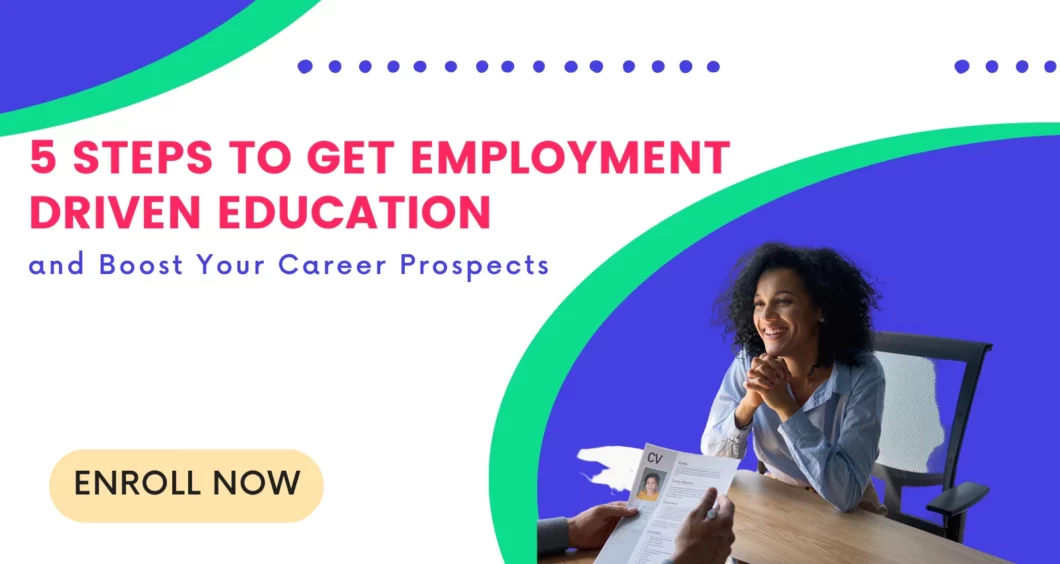No courses in the cart.
5 Steps to Get Employment Driven Education

5 Steps to Get Employment Driven Education
and Boost Your Career Prospects
Introduction
In a competitive job market, having a degree or qualification may not be enough to land your dream job. Employers are increasingly seeking candidates who are not just educated but also employable. This means that your education should be tailored towards gaining the skills, knowledge, and experience that employers value. This is where employment driven education comes into play. This comprehensive guide will help you understand what employment driven education is, why it's important, and how to get it to boost your career prospects.
What is Employment Driven Education?
Employment driven education is an approach to learning that focuses on preparing students for the workforce. It involves choosing courses and engaging in learning experiences that provide the skills and knowledge employers are looking for. This could include practical training, internships, work experience, and the development of soft skills like communication, problem-solving, and teamwork.


The Importance of Employment Driven Education
Employment driven education is important because it bridges the gap between education and employment. It ensures that students are not just academically qualified but also employable. By focusing on the skills and knowledge that employers value, employment driven education enhances graduates' career prospects and increases their chances of landing a job in their chosen field.
10 Frequently Asked Questions about Getting Employment Driven Education:
What is the difference between traditional education and employment driven education?
Traditional education focuses on academic knowledge and theoretical understanding, while employment driven education is geared towards preparing students for the workforce. It emphasizes practical skills, work experience, and employability.
How can I choose a course that offers employment driven education?
Look for courses that provide practical training, work placements, or internships. Also, consider the course’s alignment with your career goals and the needs of the job market.
Are vocational courses the only form of employment driven education?
No, while vocational courses are a form of employment driven education, they’re not the only form. Any course that provides practical skills, work experience, and focuses on employability can be considered employment driven.
How can internships and work experience enhance my employability?
Internships and work experience allow you to apply your theoretical knowledge in a real-world context, develop your soft skills, and build professional relationships. They also give employers evidence of your ability to perform in a work environment.
Do I need to pursue further education after completing my course?
Continuing education and training are important for maintaining your employability. As industries evolve and new technologies emerge, you’ll need to update your skills and knowledge to stay competitive.
How can networking help me get employment driven education?
Networking can provide insights into the industry, inform you about job opportunities, and offer advice on improving your career prospects. It can also help you build professional relationships that could lead to job offers or internships.
What are some soft skills that employers value?
Employers value soft skills like communication, problem-solving, teamwork, adaptability, and leadership. These skills are often developed through practical experiences like internships and work placements.
How can I develop my soft skills?
You can develop your soft skills through practical experiences like internships and work placements, as well as through participation in extracurricular activities, volunteering, and part-time work.
Can I get employment driven education online?
Yes, many online courses now offer practical training, internships, and focus on employability. Just ensure that the online course you choose aligns with your career goals and the needs of the job market.
Are there specific industries where employment driven education is more important?
Employment driven education is important across all industries. However, it can be particularly crucial in rapidly evolving fields like technology and healthcare, where practical skills and up-to-date knowledge are highly valued.
Conclusion
Getting employment driven education is a strategic step towards enhancing your career prospects. It involves choosing the right course, engaging in internships and work experience, pursuing continuing education and training, networking, and focusing on soft skill development. By taking these steps, you can ensure that your education prepares you not just for a degree, but for a successful career. So, unlock your potential and boost your career prospects with employment driven education.











